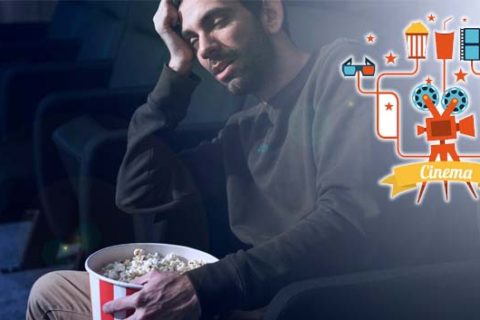Social anxiety is an anxiety disorder caused by the fear of being labeled ugly or being noticed by others. However, social anxiety is sometimes dramatized as one of the mental disorders that introverts experience. In reality, everyone will be able to experience social anxiety, even extroverts.
Signs and Symptoms of Social Anxiety
According to the National Institute of Mental Health website, people with social anxiety have the following characteristics:
- Social interactions are always characterized by fear, irrational anxiety, self-consciousness and embarrassment.
- Excessive fear of situations where one can be judged, worry about embarrassment or concern about offending someone.
- Physical symptoms include trembling, a racing heart, excessive sweating, feeling nauseous, a stiff posture and a flat tone when speaking.
- Avoid crowds and tend to shy away when crossing paths with others.
Surely, people with social anxiety will feel scared when using public facilities, going to school or work, or even leaving their house. Thus, social anxiety that has been experienced by someone for a long time will be able to interfere with people’s ability to care for and take care of themselves.
People with social anxiety will feel imprisoned at home. They will not want to interact with anyone. Also, people who experience social anxiety will tend to have low self-esteem, have recurring negative thoughts, and are prone to depression.
Apparently, social anxiety is often misunderstood as a disorder that often affects introverts, but this is not the case. People with introverts usually have other problems too, but they are not the same as social anxiety.
Difference between Social Anxiety and Introvert Hangover
Keep in mind that social anxiety is a mental disorder. According to the Guidelines for the Classification and Diagnosis of Mental Disorders (PPDGJ) III, one characteristic of mental disorders is having symptoms that occur regularly and persist. If so, what is the difference between social anxiety and an introverted hangover? Remember that introvert hangover is a term for a temporary state which is often experienced by people with introverted personality tendencies due to too much interaction with others.
Here are some symptoms experienced in introvert hangover:
- Difficult to concentrate and easily distracted when working on the tasks.
- Feels like staying away from everyone.
- Gets angry easily, even at trivial things.
- Difficulty making decisions.
- Excessive anxiety.
The symptoms of wanting to withdraw or anxiety is the similarity between social anxiety and introvert hangover. Thus, it is not uncommon for people with social anxiety symptoms, especially those with introverted personalities, to be less visible. Because usually, people with introverts tend to withdraw to recharge.
If symptoms persist over a long period of time to the point where a person is no longer able to build social relationships with people to the point where it interferes with daily life, we highly suggest them to contact a psychologist and talk about this issue.
Some Triggers of Social Anxiety
Here are some triggers for social anxiety in a person, including:
- The individual’s family history
Some mental disorders are genetically inherited, such as schizophrenia or depression. Also, this applies to anxiety disorders. - Negative experiences during childhood
Usually, these experiences are traumatic events that cause a person to experience anxiety disorders, such as being humiliated in public, bullied, or experiencing physical and emotional abuse. - Environmental pressure
Also, environmental conditions can trigger social anxiety if they occur continuously in a person. This can be seen from one of the symptoms of social anxiety, which is easily withdrawing from social interactions because they think the environment is watching all their movements. - Having physical deficiencies
Having physical deficiencies such as imperfections on the face, illnesses, or stuttering when speaking. Usually, these things will affect a person’s self-esteem, which finally leads to the feelings of helplessness and fear of being judged that people with social anxiety experience.
How to Overcome Social Anxiety?
We will not be able to prevent events that can cause social anxiety. However, there are some ways we can do to keep ourselves from experiencing the symptoms that cause social anxiety, including:
1. Get to know yourself
It will take a long time to recognize a mental disorder in yourself. Also, you will need professional help to determine what steps to take if you find symptoms of social anxiety in yourself.
2. Practice social interaction skills
Experiencing social anxiety does not mean that an individual cannot build social relationships forever. A study noted that CBT (cognitive behavioral therapy) can be the great solution to treat this disorder, as CBT focuses on the intrapersonal and interpersonal aspects of individuals (Hunger, 2018).
Usually, social anxiety is caused by the brain perceiving social interaction as a form of unsafe behavior. Through this therapy, it is hoped that individuals will be able to change their mindset regarding social interaction, so that they can build healthy relationships with other people.
3. Breathing exercises to prevent anxiety
If you have ever watched the Wandavision series, you will know the scene where Vision takes Wanda through breathing exercises to prevent anxiety before giving birth. It sounds trivial, but, there are benefits to doing breathing exercises. Research by Perciavalle, et. al. (2017) reported that deep breathing exercises can reduce stress that can potentially lead to anxiety and physical health problems.
4. Focus on the present situation
Anxiety can cause us to lose our bearings. We will not know what to do. Therefore, the best way to relieve anxiety is to bring ourselves back to the present, and accept ourselves for who we are. Also, we must realize that there are things outside of ourselves that we cannot control.
According to Russ Harris, if we can accept the reality that exists, even though life is full of challenges, then we will not find it difficult to accept them. In fact, the challenges are common. We only need to regulate them. Also, according to Harris, by being aware and focused on the present situation, we can also easily regulate the negative thought patterns that pass through.

A bookworm and researcher especially related to law and citizenship education. I spend time every day in front of the internet and the campus library.





